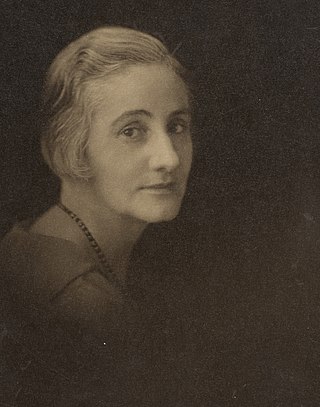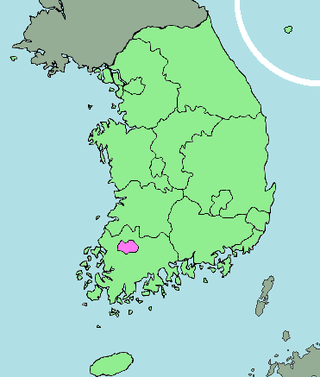
Sun Myung Moon was a Korean religious leader, also known for his business ventures and support for conservative political causes. A messiah claimant, he was the founder of the Unification Church, and of its widely noted "Blessing" or mass wedding ceremonies, and the author of its unique theology the Divine Principle. He was an anti-communist and an advocate for Korean reunification, for which he was recognized by the governments of both North and South Korea. Businesses he promoted included News World Communications, an international news media corporation known for its American subsidiary The Washington Times, and Tongil Group, a South Korean business group (chaebol), as well as other related organizations.

Seoul National University is a national research university located in Seoul, South Korea. Founded in 1946, Seoul National University is widely considered to be the most prestigious university in South Korea, and is one of the three "SKY" universities, which denotes the top three institutions in the nation.

The Family Federation for World Peace and Unification, widely known as the Unification Church, is a new religious movement derived from Christianity, whose members are called Unificationists or Moonies. Sun Myung Moon (1920–2012) started amassing followers after WWII and officially founded the Holy Spirit Association for the Unification of World Christianity (HSA-UWC) in Seoul, South Korea, on 1 May 1954. During his life Moon and his wife Hak Ja Han were its leaders, honored by members of the Unification Church as "True Parents".

Hak Ja Han is a Korean religious leader. Her late husband Sun Myung Moon was the founder of the Unification movement, also known as the Unification Church (UC). Han and Moon were married in April 1960 and have 10 living children and over 30 grandchildren. In 1992, she established the Women's Federation for World Peace, and traveled the world speaking on its behalf. She is the leader of the Family Federation for World Peace and Unification, in which she is called "True Mother" and "Mother of Peace".

Hilda Roderick Ellis Davidson was an English folklorist. She was a scholar at the University of Cambridge and The Folklore Society, and specialized in the study of Celtic and Germanic religion and folklore.

Ban Ki-moon is a South Korean politician and diplomat who served as the eighth secretary-general of the United Nations between 2007 and 2016. Prior to his appointment as secretary-general, Ban was the South Korean Minister of Foreign Affairs and Trade between 2004 and 2006. Ban was initially considered to be a long shot for the office of Secretary-General of the United Nations; he began to campaign for the office in February 2006. As the foreign minister of South Korea, he was able to travel to all the countries on the United Nations Security Council, a maneuver that subsequently turned him into the campaign's front runner.

Moon Geun-young is a South Korean actress. Affectionately called the "Nation's Little Sister", Moon began modeling at the age of 10, then made her acting debut in 1999 as a child actress. She first rose to stardom through her role as the young Eun-suh in the hugely popular television drama series Autumn in My Heart (2000), followed by a well-received turn in Kim Jee-woon's critically acclaimed horror film A Tale of Two Sisters (2003). Moon solidified her star status by headlining the box-office hits My Little Bride (2004) and Innocent Steps (2005). At age 21, she became the youngest recipient of a Grand Prize ("Daesang") which she won at SBS Drama Awards for the television series Painter of the Wind (2008).

Katharine Susannah Prichard was an Australian author and co-founding member of the Communist Party of Australia.

Petruchio is the male protagonist in Shakespeare's The Taming of the Shrew.

Diplomatic relations between South Korea and the United States commenced in 1950, when the United States helped establish the modern state of South Korea, also known as the Republic of Korea, and fought on its UN-sponsored side in the Korean War (1950–1953). During the subsequent decades, South Korea experienced tremendous economic, political and military growth.

Myongji University is a private, Christian university founded in 1948 in South Korea. It provides higher education in the fields of engineering, sciences and humanities. It has two campuses: the Social Science Campus is located in Seoul and the Natural Science Campus is in Yongin which is 35 kilometres (22 mi) south of the capital. It is made up of 10 colleges, 42 departments, seven faculties and eight specialized postgraduate programs.
Sex Among Allies: Military Prostitution in U.S.-Korea Relations is a study by American academic Katharine Moon on prostitution around U.S. Military bases in South Korea during the 1970s. This study was published in 1997.

Moon Jae-in is a South Korean former politician who served as the 12th president of South Korea from 2017 to 2022. Prior to his presidency, he served as Senior Secretary for Civil Affairs and Chief of Staff to President Roh Moo-hyun, Member of the National Assembly, and Leader of the Democratic Party of Korea.

During and following the Korean War, the United States military used regulated prostitution services in South Korean military camptowns. Despite prostitution being illegal since 1948, women in South Korea were the fundamental source of sexual services for the US military and a component of Korean-American relations. The women in South Korea who served as prostitutes are known as kijichon (기지촌) women, also called as "Korean Military Comfort Women", and were visited by the US military, Korean soldiers, and Korean civilians. The prostitutes were from Korea, Philippines, China, Vietnam, Thailand, Sri Lanka, Nepal, Indonesia, and the Commonwealth of Independent States.

Katharine Elizabeth McBride was an American academic in the fields of psychology and neuropsychology. She served as the fourth president of Bryn Mawr College from 1942 until 1970.

The Korea Pathfinder Lunar Orbiter (KPLO), officially Danuri, is South Korea's first lunar orbiter. The orbiter, its science payload and ground control infrastructure are technology demonstrators. The orbiter will also be tasked with surveying lunar resources such as water ice, uranium, helium-3, silicon, and aluminium, and produce a topographic map to help select future lunar landing sites.
Secular laws regulating hairstyles exist in various countries and institutions.
Kijichon, literally camptown, refers to the towns surrounding military bases of the United States Forces Korea (USFK). They are generally located in more rural areas, many of which are near the Korean demilitarized zone. The inhabitants do not interact with Korean society at large due to the stigma associated with living and working in kijichon. In terms of Korean citizens, kijichon are primarily populated by the poor and otherwise marginalized. The towns exist mainly to provide prostitution to American soldiers, which was deemed as "necessary for soldiers to continue protecting South Korea, and was beneficial for economic development" in kijichon. All of the businesses in these towns that explicitly cater to "U.S. military personnel must be licensed by the Korea Special Tourist Association." This cooperation with the government and the fact that many bases are located near the demilitarized zone makes it easier to conceal the sex work and G.I. crime from the general population.

Women's role in the Democratization of South Korea is a topic that has been rarely discussed and rarely acknowledged. Women's participation in civil society has contributed to the process of the development of democracy in South Korea. Additionally, the democratization movement can be described as the increasing participation of marginalized groups such as women. Having said that, democratization was an outlet for women to transform their grievances into actual collective action. With the help of democratization, these activisms were made possible because it opened up tons of opportunities for civil society. Unfortunately, although women have played a role in the Democratization of South Korea, there were still internal and external problems that hindered their growth and development.

My Sister's Place is an advocacy and counseling group founded in March 1986 in Uijeongbu, South Korea. The group is a non-profit government organization that supports women involved and affected by prostitution in military camp towns. It focuses on improving the lives of women who have entered the sex industry in and around U.S. military base camp towns. Working with women from diverse backgrounds—Korean-born, Russian, and Filipina women—Durebang challenges militarism and exploitation in the camp town sex industry. Durebang provides online counseling, community outreach, English classes, Hangul classes, and legal rights classes
















